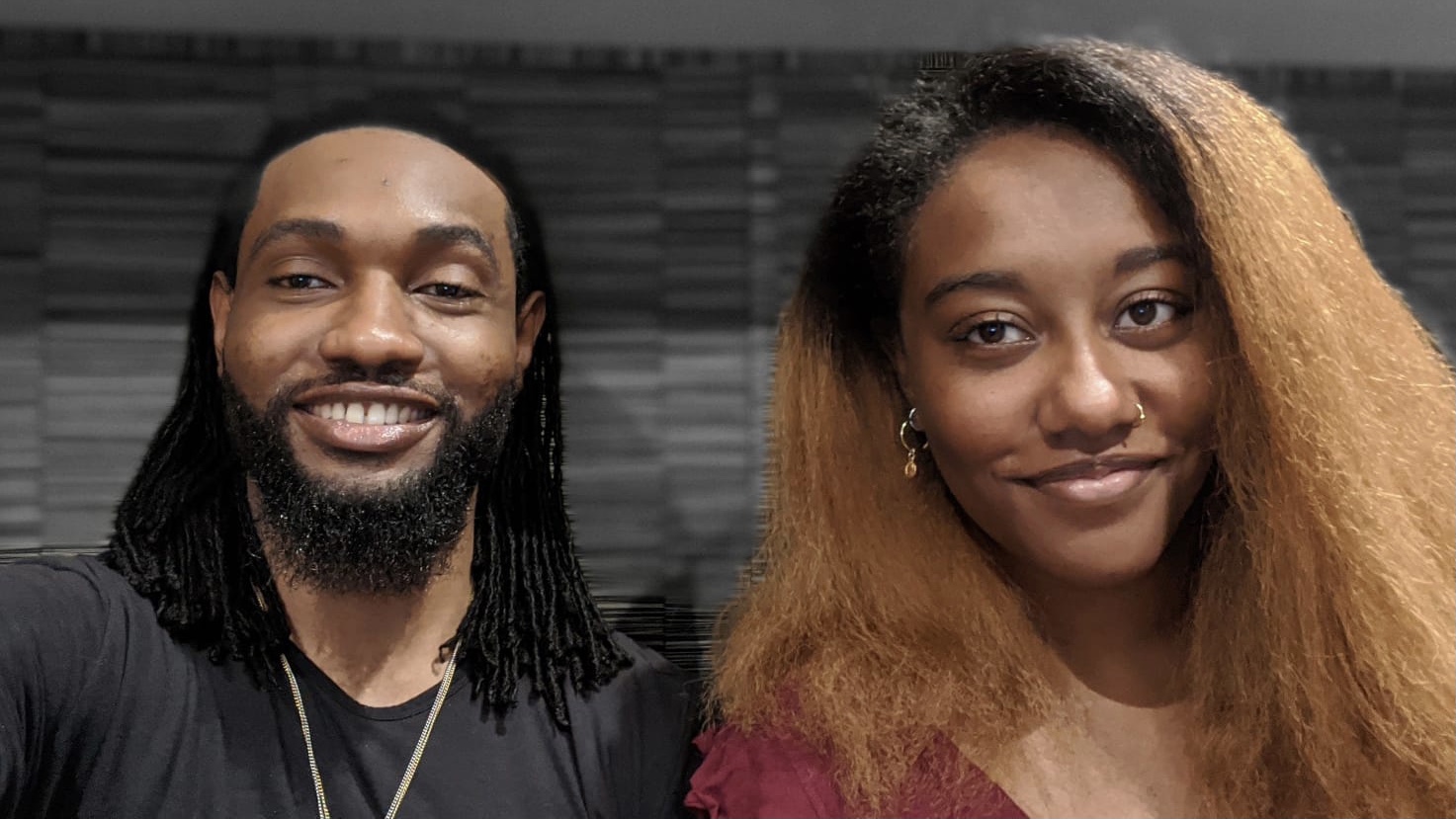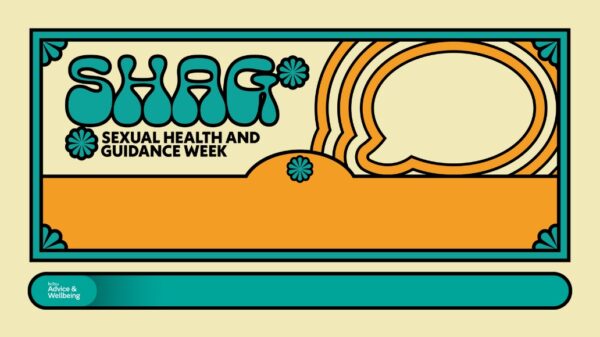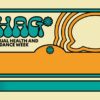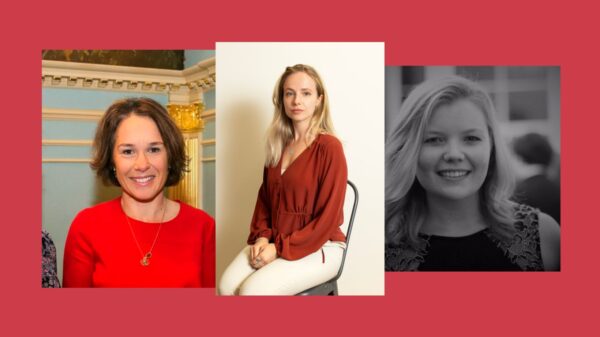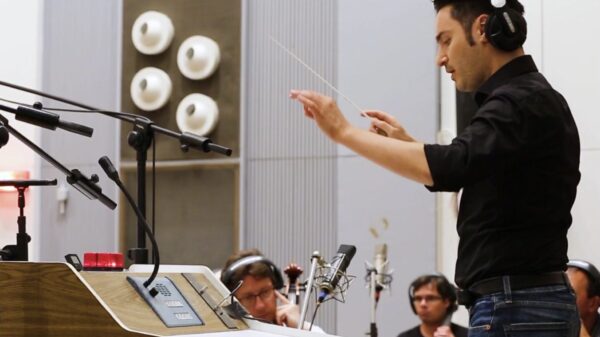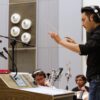Humans of KCL President Nima Mukherjee interviews Nkasi and Yannick of “Black People Talk” (BPT).
Nkasi’s Journey
“I was an MSc Mental Health Studies student at King’s in 2016/17. After two years working for King’s, I’m now doing a PhD exploring the mental health and wellbeing of Black, Caribbean, African, and mixed-heritage students at university. As part of this process, I’m going to be conducting interviews and asking students about their firsthand experiences, predominantly focusing on what they feel has affected their mental health and wellbeing at university.
“The idea came about from my own personal experiences at university – I’ve struggled with my mental health from about the age of fifteen, but it got much worse during my time as an undergraduate. I struggled to keep up with my academic studies and with friends, and it was just a really difficult period in my life. I felt hollow, almost like a shell of myself, for so long. This continued until and after I began my Master’s, but by that point, I had been diagnosed and managed to get a bit more help, so I didn’t struggle as much – that didn’t make studying with a chronic mental health condition any less difficult, though.

â€I think this is something that doesn’t really get talked about amongst students, especially when I was studying back in 2011-2014. My PhD is thus very much born from conversations that I have had with other students; the realisation that my journey was really not unique, and that a lot of students – especially students that look like me – really struggle with various things. The experience of racism has been a real shocker at university, and that definitely affected how much I engaged with university life and how much I wanted to stay in academia, something I did not experience alone.
“Talking to people like me made me realise that I wanted these stories to gain the coverage they deserved, and that’s sort of what led to my PhD. I guess the issue is that, when examined from an intersectional point of view, support services don’t necessarily always offer the levels of support that Black students require, and I think greater conversations need to be held about that. How can we be supported if our story or what we go through hasn’t been, or isn’t, examined?â€
Yannick’s Journey
“BPT came about as a result of my own personal experience as a mature student at the University of Bristol. I was the only Black male student in a class of 140-something students, and I felt so isolated, alienated and unseen – I didn’t see that many people like me, I didn’t feel attached to the university, and on campus, my days consisted of dealing with microaggressions from those around me.
“At that point, I had already been struggling with anxiety and depression; and so all these factors combined, made for a very bad combination of challenges. Fortunately, I managed to make it through my Undergraduate degree and enrolled on a master’s at the same university. During my master’s, I thought to myself: ‘Considering what I went through, why don’t I start something that I would have needed myself?’
“I never truly felt understood by the mental health services available to me – which meant that I stopped reaching out for help at all. That’s when I began to realise that something had to be done for those who felt like me. So, with the help of some amazing students and university officials, BPT (then called Black Men/Women Talk) was embedded into the student services programme, with sessions slated to run on a bi-weekly basis.

â€I met Nkasi shortly after; her experience at King’s echoed mine at Bristol and those of many Black students at other universities. We then combined our experience and knowledge, re-developed the existing model, she came on board as a Co-Founder, and we launched BST at King’s. All in all, we want this initiative to be a space where people can be brave. Bringing your whole, authentic, and vulnerable self to the table can be scary, you can’t deny that; but one thing you will find is that you are not alone in this. Support can be found in the most unassuming ways.â€
What is BPT?
“BPT is a chapter-based initiative that began at the University of Bristol in February of 2019. We are currently focussing on the Academic chapter, offering Black Students Talk (BST), the first of a total of three chapters. BST is a peer wellbeing support group that provides supportive, safe, and therapeutic spaces for Black students to meet, to share, to learn, and to manage their own and each other’s mental health and wellbeing.
“Students are introduced to peer health and psychoeducation, and they take part in 1-1 and group discussions on topics that directly or indirectly affect their mental health. In order to make sure that we include as many people from within the spectrum of Blackness and promote safe spaces, the BST groups can be tailored to provide Black students with further shared identities – LGBTQIA+, international, and so on – with an opportunity to come forward and safely participate. An example of this are the Men’s group and Women’s group that have been successfully running at the University of Bristol for the past two academic years.
“Our sessions are facilitated by students who are trained in the BST model – essentially, we will come in every year and train a minimum of four students who will go on to facilitate these sessions throughout the year – and these students are paid, of course! We know all too well how Black people are often solicited to provide all of their help, physical and emotional labour to such initiatives with no debriefing at the end, and no consideration for how they may have felt throughout the entire process. That is a very heavy load to put on someone’s shoulder, so we thought it was essential that our facilitators are supported and rightfully compensated. We also aim to normalise access to mental health services by inviting guest facilitators from Black-led organisations to showcase their work. BST wellbeing field trips have also been very popular in the past, and should the current situation allow us, we look forward to doing the same at King’s!”
Click here to read further interviews conducted by Humans of KCL. You can also visit their own Instagram and Facebook pages. Find out more about BPT here.

